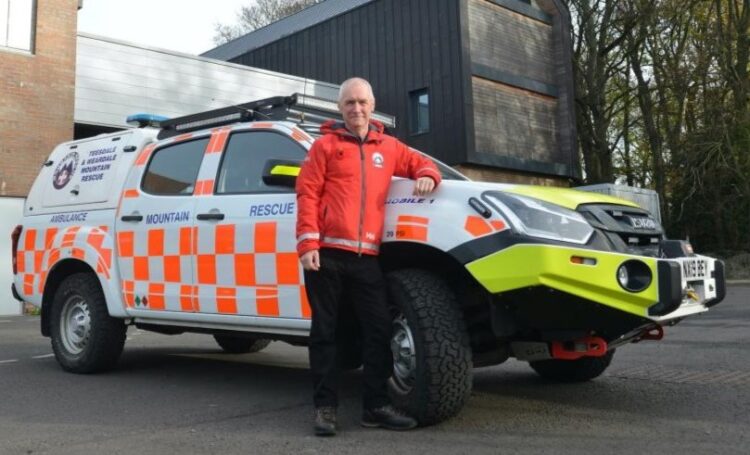Teesdale’s mountain rescue team leader has stood down after eight years at the helm. Former fireman Steve Owers spent seven years as deputy leader of Teesdale and Weardale Search and Mountain Rescue Team before taking on the leading role in 2016.
He has been with the team for 29 years and while not carrying on in the role of leader, he will remain part of the “hill team” and a search manager.
Mr Owers said: “It is what I had planned. I told the team a year ago I wanted to hand over the responsibility to somebody else.
“The responsibility stops with the team leader and I felt I had taken the team as far as I could possibly take it.”
The 66-year-old spent 36 years as a firefighter and fire officer, predominantly in the south of County Durham, during which time he was in charge of all the retained fire stations, and ended up as a district manager.
He retired from the service in 2010.
He said: “I’ve just worked out the other day I have responded to incidents, whether fire or as mountain rescue, for the equivalent of 60 years, if you add those overlapped times together. Hopefully I’ll have a good few years yet.”
Mr Owers leaves the leadership post with the team in a healthy situation.
There are about 40 volunteers in the operational hill team and a further ten in the support team who help with administration, finances and equipment maintenance and preparation.
He noted that the work of the team had changed over the years.
He added: “When I first joined the team we probably got a maximum of a couple of dozen call-outs a year, and they were nearly always hill incidents on the fells.”
However, changes had started before he joined, and it was caused by the Lockerbie airplane disaster in December 1988, when mountain rescue teams were called in to help with searches.
Mr Owers said: “After we went up there the police realised that they had a resource that were trained to search, which most police officers aren’t.
“We can manage ourselves and look after ourselves on rough terrain so they started to ask if they could use us for some of the stuff we do now, like look for vulnerable people, like elderly people with dementia and children that go missing.”
North East Ambulance Service has also started calling on the team for help when they have a casualty in a difficult to reach area.
The rescuer said: “For example, in Hamsterley Forest when mountain bikers wrap themselves around trees, that sort of thing.”
Recently the team was called when a woman came off her horse along a bridleway.
He said: “Four or five weeks ago, sadly we had a cardiac arrest on the fell above High Force, so we do get a mix of jobs now.”
A tough part of the job, is the recovery of bodies, which happens on a “fairly regular basis”.
Mr Owers said: “It is sometimes difficult for people who are volunteers to have to deal with, and we have ways to try to deal with it, especially for some of the younger team members who are coming in.”
He added that there are systems in place for team members to talk about things they have seen and counselling is offered through the police service if necessary.
The team has been involved in a lot of river incidents, where people have died while swimming in areas like High Force and Low Force, and incidents where Durham University students have ended up in the River Wear.
Mr Owers said: “Young males swimming in rivers often ends in tragedy.”
One of the more bizarre callouts for Mr Owers was when the team was asked to help find an 80-year-old man who had become detached from his friends in mist near Tan Hill Inn while out wild camping.
Mr Owers said: “We did a fairly extensive search, we had the dogs up, but nothing.
“The search went into a second day and then it went into a third day.
“Then the search managers held a press conference at the inn – his family were there and literally he walked in.
“A member of the public had seen him on the road and brought him in. We never got to the bottom of where he had been all those days,” he said.
“We were fairly certain if he was in that area, we would have found him.”
As a charity, the team needs to raise £35,000 a year to keep going and most of the cash it receives is from people in Teesdale and Weardale, despite working across the entire county.
Mr Owers said: “The other thing that keeps us going is the support we get from our families. That is invaluable. I am very fortunate I have a wife, Linda, and a daughter, Claire, who have supported me throughout the time I have been in the team.”
Of his time at the helm, he added: “The proudest thing for me is to say I was team leader of Teesdale and Weardale Search and Mountain Rescue Team, not because the role I do, but because of what the team have done to be the team they are today.”






